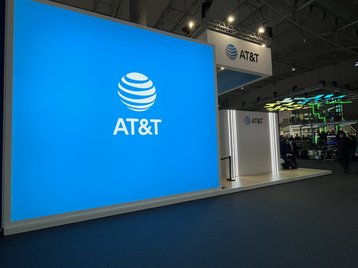Months after a lengthy stand-off with AT&T over a pay dispute, the Communications Workers of America (CWA) is once again taking on the telco.
In a filing this week to the Federal Communications Commission (FCC), the CWA outlined its opposition to AT&T's plans to stop new orders being placed for copper-based landline telephone services across several US states, claiming that the carrier would be abandoning its customers in rural areas.
AT&T maintains that its current customers will still keep their existing voice service and continue to have the ability to make phone calls, even if its application is approved.
The carrier has outlined plans to retire its copper network by 2029, amid the company's major fiber build-out across the US.
AT&T notably signed a $850 million sale-leaseback deal last month to sell a portfolio of Central Offices at more than 70 properties across the US.
As the CWA notes, AT&T has applied to the FCC to stop selling new landline telephone services in Alabama, Arkansas, Florida, Georgia, Illinois, Indiana, Kentucky, Louisiana, Michigan, Missouri, Mississippi, North Carolina, Ohio, Oklahoma, South Carolina, Tennessee, Texas, and Wisconsin.
CWA says that if AT&T doesn't upgrade its copper network to fiber, it will leave people in the affected areas with limited options.
The union even argues that fiber offers the "most fiscally prudent expenditure of public funds," citing greater capacity, predictable performance, lower maintenance costs, and a longer technological lifetime than coaxial cable, satellite, and fixed wireless technologies as key benefits.
"If the Commission approves AT&T’s applications, the company will be free to exit 250,000 square miles of territory, or fifty percent of its historic footprint, while committing to deploy fiber-optic broadband to only some of the remaining areas," said CWA president Claude Cummings Jr in the company's filing.
"AT&T justifies this transition based on shifts in technology, but its decision to withdraw from such a large portion of its service area will harm communities and undercut the promise of universal service."
The CWA, which represents communications workers across the US, notes that AT&T's proposal "would put rural communities last, with lower quality and less reliable connectivity options."
“While AT&T’s corporate executives and investors are insulated from the impact of these cuts on the communities they serve, frontline workers bear the brunt of customers’ frustration with poor service quality, long wait times, and other harms from understaffing and outsourcing of critical functions,” added Claude Cummings Jr.
Following AT&T's announcement over its copper retirement plans, the carrier also said it expects to return over $40 billion to shareholders over the next three years through stock buybacks and dividends.
AT&T says it's still committed to rural customers
In response, AT&T said it remains committed to serving customers across rural America.
“We’re proud to be America’s largest fiber builder and recently announced plans to reach 50 million locations by the end of 2029. We’re also proud to be one of the largest employers of union-represented employees in America," said an AT&T spokesperson in a statement to DCD. "We’re committed to providing connectivity to all of our customers, including those in rural America, whether with fiber, wireless, or satellite options. Through this transition, no customer will be left without voice or 911 service.”
AT&T accused the CWA of being "short-sighted."
"CWA’s short-sighted objections to these applications, if successful, would have the exact opposite effect they intend. It would hinder investment and actively slow down the deployment of fiber and wireless connectivity to more Americans."
"Today we spend $6 billion annually in direct costs to keep our copper services running, which would be much better spent on connecting more Americans to newer networks."
AT&T also told DCD that on average, the company only installs two traditional copper landline (POTS) orders each year in these wire centers.
Fiber push
The CWA has urged the FCC to ensure AT&T invests in fiber deployment "beyond what the company might otherwise choose to pursue."
In the filing, the union criticizes AT&T for targeting fiber deployments in more densely located parts of the country that can yield a high-profit margin.
AT&T has made no secret of its desire to push its fiber deployment rollout, with CEO John Stankey outlining ambitions to reach more than 50 million fiber locations by 2029 late last year.
He noted at the time that around 45 million of those fiber passings would be from "organic deployments," while more than five million will be via its fiber JV, Gigapower, with investment company BlackRock.
At present, the company is nearing 29 million passings (28.9 million). The carrier currently serves more than eight million fiber customers.
The carrier reiterated its desire to move its customers away from copper, noting that only five percent of its residential customers are still using copper voice technology.
"Legacy copper services are no longer meeting our customers’ needs for speed, reliability, and always on-connectivity. Customers are voting with their feet and moving off of these 70-year-old copper services," noted AT&T.
"Modern networks are far better for our customers than TDM-based copper – all more capable of improved resiliency, performance, and future innovation."
Last year, AT&T reached an agreement with the CWA for its workforce in the Southeast and West over improved contracts for around 23,000 employees across 11 states.
The agreement was reached after a month-long strike, which was the longest in AT&T's history, and saw more than 17,000 AT&T workers across nine Southeastern US states take to the picket lines.
Following this, there was also a dispute between CWA and AT&T West which covers AT&T's workers in California and Nevada.
AT&T employs more than 62,000 people that are represented by a union across the US.







